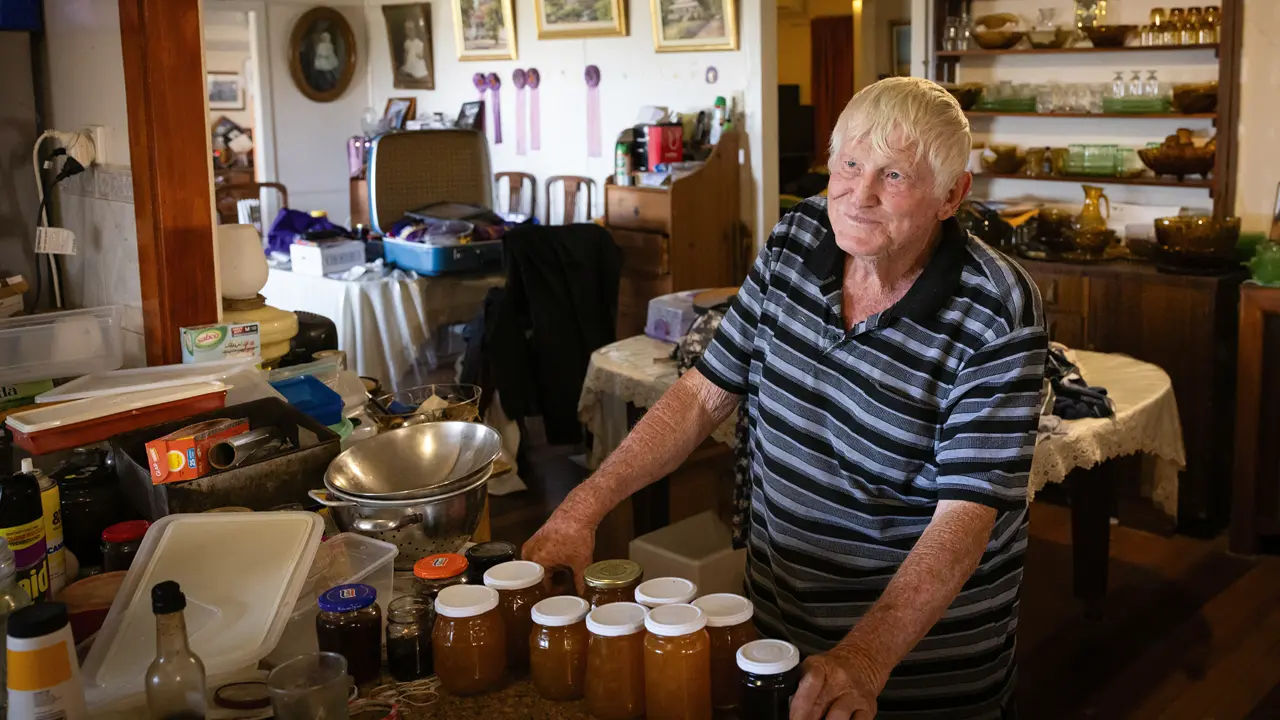Our best friend and biggest foe.
Story Ken Eastwood Photo Matthew Abbott
Just a couple of seconds. One… Two … Tim Haslam reckons that’s all it would have taken to have avoided catastrophic burns to 38% of his body, multiple operations, the amputation of parts of his fingers and psychological scars to himself and family as deep and long-lasting as the physical injuries.
Tim was on the header, 5 days before Christmas, bringing in the last of the barley crop on his large cropping and sheep venture in Popanyinning, WA, when the machinery caused a spark that started a fast-moving fire. The only person within cooee, Tim vacated the header and retrieved his ute, which had firefighting gear, but by the time he returned, the growing fire was rapidly moving into his neighbour’s place.
“Just all of a sudden the wind gusted and all that was in front of me was an orange plume of flame,” he says a year after the event, returning from yet another medical appointment at the Fiona Stanley Hospital burns unit in Murdoch, 2 hours’ drive away.
Just at that moment, when the fire around him was at its most intense, the ute bogged. (He later discovered it had a flat tyre.) “I should have sat in my ute for 1–2 seconds and assessed, which is hard to do when there’s flames flicking around your arse,” Tim says. Instead, his ‘flight’ response saw him run from the ute, through the flames and into the intense radiant heat. “I twisted my ankle and fell over, so my forearms, hands and face got burnt,” he says. “When I stood up, I’d lost my left boot, so I was standing in the fire on one foot and I just sort of stood there frozen … I had my hands in the air and the skin was dripping off them.”
Employee Noel Mustchin was soon on the scene and probably saved Tim’s life. He raced him the couple of kays to the homestead, where there was an outdoor shower, spraying him with water inside the ute on the way. Tim stayed in the shower for an estimated 30–40 minutes until paramedics arrived. “All I could remember was my hands going back and forward in a motion of shock. I recall getting terribly, terribly cold because I’d been under the water for so long.”
A helicopter flew him to Fiona Stanley, and he stayed in hospital for 84 days, initially passing in and out of hallucinations. “I was very, very confused,” he says. “I stayed up all night one night because I thought I was hanging onto a bobtail lizard, and I didn’t want it to bite me. Then, for a while, I was sleeping on the Nullarbor participating in a surfing competition. And I don’t even surf.”
As reality set in, depression followed. “I was really not comfortable about being in hospital,” he says. Tim lost one finger and the tips of other fingers and has full-thickness burns on his arms and legs that require him to wear head-to-toe compression garments for 2 years. He and his wife Sally believe that without the research and care of the Fiona Wood Foundation, he would have lost both his legs, and possibly would have died.
Still emotional about the incident, Tim is very grateful for his community and the care he has received. The people of Popanyinning rallied around the family, with 40–50 turning up for a working bee to bring in the harvest. “It gives you a lot of confidence in human nature,” Tim says. “Now I’m harvesting again I’ve got my mojo back – I got off a header at 11 o’clock last night and I’m up at 5 ready to go. I’m doing all the jobs I used to do, but I find them difficult, and they take me a long time.”
The risk of fire hasn’t gone though – early in the harvesting program this summer, the header sparked another fire. But this time Tim acted more calmly. “Because I thought for 1–2 seconds, I had a completely different result.”
This story excerpt is from Issue #159
Outback Magazine: February/March 2025










